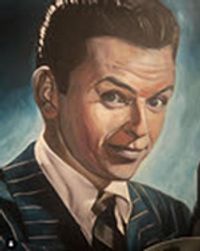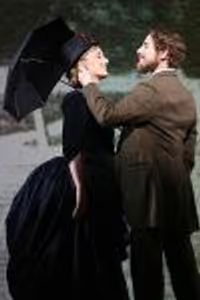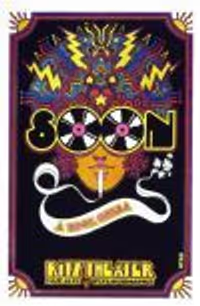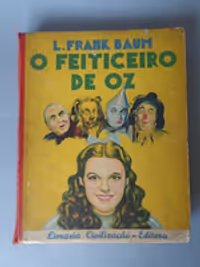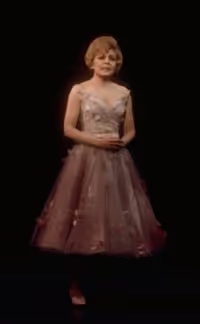Show Boat revival?
Globefan
Broadway Legend Joined: 10/31/12
#50Show Boat revival?
Posted: 5/23/20 at 2:12pm
My casting picks for a remake of Show Boat would be:
Lily James as Magnolia Hawks and her daughter Kim (as an adult)
Lady Gaga as Julie LaVerne
Zac Efron as Gaylord Ravenal
Viola Davis as Queenie
Sterling K. Brown as Joe
Tom Hanks as Cap'n Andy
#51Show Boat revival?
Posted: 5/23/20 at 2:42pm
OlBlueEyes said: "Probably no one will ever watch this clip, but I wanted to include Frederica von Stade, who sang Magnolia in John McGlinn's 3 CD set."
I have this McGlinn version on one CD. According to the notes: " It is the first single-disc Show Boat album to run over seventy minutes. It is the music precisely as heard opening night at the Ziegfeld Theatre, with the original overture, the finales of both acts, the opening of Act Two, and, of course, all the beloved songs of the score."
I have it synced to my MP-3 player and listen to it frequently when I'm out exercising. Wonderful stuff.
Thanks for posting the video.
#52Show Boat revival?
Posted: 5/24/20 at 2:27am
joevitus said: "She's played the role on tour, as Hattie McDaniel had played hers in L.A. Almost all the leads had played their parts on stage.
It's a magnificent film in mostrespects, offensive in a few areas. The miscegenation scene is well-handled and Robeson is treated with dignity, and the imagery in "Ole Man River" is powerful. But there are also embarrassing shots of black people rolling their eyes (in close-up, no less) and other such stereotypical/racist things. These two qualities jar against and contradict each other. I wonder if the negative imagerywas second unit stuff James Whale had no control of.
It is unquestionably the best of the three versions, the truest to the stage show, and happily finally available on Blu-ray."
Joe, those "stereotpyical/racist things" include the shimmy and the shuffle, two dances that totally revolutionized Broadway movement. I used to explain very carefully before I showed those numbers to students, but the film captures elements of Broadway history that aren't always readily available elsewhere.
Of course a current production would tone down that stuff, but from a historian's perspective, it should be noted that "shuffling" was revolutionary before it was stereotypical.
mikey2573
Broadway Legend Joined: 12/28/10
#53Show Boat revival?
Posted: 5/24/20 at 9:24am
I have the SHOW BOAT set from the Criterion Collection which is a fantastic presentation with lots of extras (most of which were included in a Laserdisc release some 20 or 30 years ago). While I appreciate all the information from the Miles Kruger commentary on the second audio track, it is obvious that he is reading from a prewritten script so it loses some spontaneity.
#54Show Boat revival?
Posted: 5/24/20 at 11:37am
I have this McGlinn version on one CD. According to the notes: " It is the first single-discShow Boatalbum to run over seventy minutes. It is the music precisely as heard opening night at the Ziegfeld Theatre, with the original overture, the finales of both acts, the opening of Act Two, and, of course, all the beloved songs of the score."
I have it synced to my MP-3 player and listen to it frequently when I'm out exercising. Wonderful stuff.
Thanks for posting the video.
Glad you liked it, but I think it's a violation of Board rules to thank someone for posting a video. It's just not done.
I see that on Amazon they have both the three CD set and the one CD Highlights. Both in stock and reasonably priced. I also found this on Amazon's premium music service, although it took a lot of voice commands to Alexa before she found what I was looking for. The description of the three CD set includes a complete list of the tracks on each disk.
https://www.amazon.com/Jerome-Kern/dp/B000002SJL/ref=sr_1_12?dchild=1&keywords=showboat+musical&qid=1590332195&s=music&sr=1-12
John McGlinn's Show Boat is a staggering achievement and a recording for the ages.
You didn't mention it, but a lot of dialogue is also included. I thought that it was all the dialogue, but it says the "underscored dialogue," which I'm guessing means dialogue spoken over background music. And all for $12.28.
I have a Rebecca Luker anecdote. I had a crush on her when Show Boat arrived in New York. She took some questions that were submitted to her through America Online. I had seen her given a credit on McGlinn's collection just for saying as a passerby in the last scene, "Good Evening, Captain Andy." I thought that it would impress her that I knew this. She explained that she had just arrived in New York and McGlinn was her only contact. So she found him just as they were recording that last scene and she was pressed into duty as a passerby.
O.K. Not a great anecdote.
#55Show Boat revival?
Posted: 5/24/20 at 12:20pm
Just skimmed through this thread for the first time, and it doesn't seem like anyone has mentioned the exquisite production that San Francisco Opera did some years back, directed by Francesca Zambello. I got to see it live, but it was also filmed professionally and released on DVD. It's definitely worth a watch. It's very large and lavish, with some great cast members. Bill Irwin played Cap'N Andy, Harriet Harris as Parthy Ann, and John Bolton as Frank. Not all of the actors fared as well - some of them were opera people, and couldn't quite hack it on the acting front.
The show did seem a bit dated to me. Not so much in the themes, but moreso in the structure and pacing. Maybe it was because the musical direction was geared toward operatic sensibilities, but many of the musical numbers felt really drawn out and lacking in momentum.
That said, this production was still pretty glorious. It's a fascinating piece of theatre history, with some beautiful music. I felt lucky to be seeing someone do justice to the show's grand, epic scale. And as others have said, I think Old Man River is still one of the greatest songs written for the theatrical cannon.
#56Show Boat revival?
Posted: 5/24/20 at 1:50pm
I was just about to say the same thing about the Zambello opera house SHOW BOAT - I didn't get to see it but I very much enjoyed listening to the radio broadcast from Lyric Opera of Chicago. I really think the opera house is the best home for it, and other golden age musicals.
A couple decades back I was studying opera in my undergrad at Indiana University, and I said at the time that I'd love to one day be the conductor that opera houses bring in to conduct classic musicals like R&H and Bernstein. I was very curtly informed that such a thing would never occur, that the musical standards of the opera house fundamentally excluded such musically worthless drivel and that opera houses would never add things like CAROUSEL or ON THE TOWN to their rep. Which, even at the time German opera companies were doing so I thought it was a snobbish opinion, but you didn't buck the classical faculty at Indiana in the '90s.
And now Lyric Opera has not only done SHOW BOAT, they've done all the major R&Hs and JESUS CHRIST SUPERSTAR to boot. And they do them huge with a full symphony orchestra and appropriately-sized choruses of singers and dancers.
I think that's the future home of classic shows. Commercial theatre just isn't set up for it. There's not enough of a consistent audiences to make a profit and do the shows right so you have to start trimming and compromising. Opera operates under a completely different production model and having a SHOW BOAT that can be shipped around to various companies who do a limited run every few seasons seems like the best way to keep it alive. I'm glad my stuffy opera professors were wrong and people are taking these shows seriously and I think it's a better home for them than in a commercial setting.
RAgness2
Swing Joined: 11/21/18
#57Show Boat revival?
Posted: 5/24/20 at 4:09pm
I saw an absolutely phenomenal summer production of Show Boat in Myrtle Beach, SC in 1973. Anyone else?
Globefan
Broadway Legend Joined: 10/31/12
#58Show Boat revival?
Posted: 5/24/20 at 8:39pm
I think a new film adaptation could work, IF DONE RIGHT.
#59Show Boat revival?
Posted: 5/24/20 at 10:19pm
I think that's the future home of classic shows. Commercial theatre just isn't set up for it. There's not enough of a consistent audiences to make a profit and do the shows right so you have to start trimming and compromising.
I would reserve judgment on that. The Hal Prince Show Boat played 1000 performances, the Donna Murphy King and I 800 performances and the Lincoln Center Theater South Pacific over 1000 performances.
Stage South Pacific in the huge, drafty Met instead of the comfortable Beaumont with It's thrust stage. I just don't see that.
The recent, successful revivals on Broadway have raised the bar on cost, though. After the thirty piece orchestras of the Lincoln Center revivals, would anyone settle for half as large again?
The show did seem a bit dated to me. Not so much in the themes, but more so in the structure and pacing.
Is structure and pacing inherent in the show, or is it the responsibility of the creatives? Show Boat is a bear to revive; it places so much responsibility on the creative team. Every revival must be pieced together by picking and choosing from all the available material. New songs and material were added for the 1936 film and the 1946 Broadway revival (Kern died just before it opened). Even more so, material that was cut out of the original production must be examined.
Flo Ziegfeld was afraid of a dark and heavy production. The dirge "Misery's Comin' Around" was dropped and the racial themes emphasized less. Prince restored that song and even promoted it in importance, as he tackled the racial issues.
The second act is very fluid. When we were discussing earlier the reunion of Gay and Magnolia at the end, I think many took their cue from the MGM musical, in which Gay returned after only five years. This observation of the reunion is from the New York Times review from 1994, which is also interesting to read as it explores the changes and choices made by Hal Prince.
Three generations of friends and family gather on the Cotton Blossom for the finale, but given the pain they have caused one another over the years and the losses they have suffered, only a committed optimist would consider it a happy reunion.
https://www.nytimes.com/1994/10/03/theater/theater-review-show-boat-classic-musical-with-a-change-in-focus.html
#60Show Boat revival?
Posted: 5/25/20 at 1:05am
I want to add that with some creativity, less can be made to seem like more. We did a production in South Florida in the mid-1970s that cost nothing compared to a Broadway revival. Musical director Richard Parinello--with careful doubling and the use of mikes in the pit--made 12 musicians (the maximum we could afford) sound like 35. Director John Driver did various things, like using a scrim behind the boat during "Old Man River" so the white cast could double as dockworkers in the shadows. (I'm sure this would be called "virtual blackface" nowadays and a protest would ensue, but not a single African American lost his or her job because of this staging; it simply gave the song the majesty it deserves.) Laurence Guittard and Kathy McCauley sang Gaylord and Magnolia as well as they have ever been sung, and Julie Wilson was a wonder as Julie. Harvey Evans and Virginia Sandifur practically stole the show as Frank and Ellie.
The show had to play both our smaller theater (1200 seats) in Fort Lauderdale (with a smallish stage) and then our giant barn (3,000 seats in what had been the Jackie Gleason Theatre; you could land a 747 on stage) in Miami Beach.
I found it superior in almost every way to the 1983 Houston Grand Opera revival on Broadway, a production I also enjoyed. But as I said, less can be made to look like more.
jimmycurry01
Broadway Legend Joined: 5/28/05
#61Show Boat revival?
Posted: 5/25/20 at 12:54pm
OlBlueEyes said: "I would reserve judgment on that. The Hal Prince Show Boat played 1000 performances, the Donna Murphy King and I 800 performances and the Lincoln Center Theater South Pacific over 1000 performances.
Stage South Pacific in the huge, drafty Met instead of the comfortable Beaumont with It's thrust stage. I just don't see that.
At The Met, perhaps not, but temms' point still stands, as the classic shows have been popping up at many of the world's opera companies. While The Met might swallow a Broadway classic up, The Lyric Opera of Chicago, The Houston Grand Opera, and San Francisco Opera have all done very well with such performances, including South Pacific. Their houses are about a third smaller than The Met, but all indoor opera houses are smaller than The Met. It is almost ridiculous to throw out temms' idea based on one opera house that seats nearly 4,000, when most others are smaller by almost 1,000 seats or more.
goodlead
Stand-by Joined: 3/30/18
#62Show Boat revival?
Posted: 5/25/20 at 6:38pm
In the 1951 movie, Ava Gardner sang "Can't Help Lovin' Dat Man" as a ballad. It's much more fun when it's a cakewalk, as in the 1936 movie and tbe Prince stage revival.
#63Show Boat revival?
Posted: 5/25/20 at 8:01pm
It pains me just to hear that this was the way you made a living, while I was crouched over a keyboard all day staring at a cathode ray tube while engaged in something like adding support for the IBM PS/2 mouse to the latest Intel motherboard.
The public will really not miss an orchestra with real strings? Any record of your show?
#64Show Boat revival?
Posted: 5/25/20 at 9:12pm
goodlead said: "In the 1951 movie, Ava Gardner sang "Can't Help Lovin' Dat Man" as a ballad. It's much more fun when it's a cakewalk, as in the 1936 movie and tbe Prince stage revival."
In the scripts I know, it is done both ways. As a cakewalk by Julie and Magnolia in Act I and as a ballad with guitar when Magnolia auditions for the "club" in Chicago in Act II. In the 1970s production I described above, Kathy McCauley's coloratura ballad version was exquisitely moving--which made it all the more ironic that the club owner wants it "ragged".
#65Show Boat revival?
Posted: 5/25/20 at 9:23pm
OlBlueEyes said: "It pains me just to hear that this was the way you made a living, while I was crouched over a keyboard all day staring at a cathode ray tube while engaged in something like adding support for the IBM PS/2 mouse to the latest Intel motherboard.
The public will really not miss an orchestra with real strings? Any record of your show?"
Oh, that was back in the 1970s. For most of the ensuing decades I too worked in front of TV monitors, typing for lawyers to support my theater work. That's what I get for embracing academia. LOL.
There were strings in our version, just not a lot of them. (I can't recall the exact instrumentation; obviously, it was carefully planned.) I'm sure nobody would be fooled if they listened to the McGlynn recording and then attended our show the same night. But that recording wasn't available yet and 3,000 people a night thought ours was the most lavish production we had ever done. I'm not arguing against Prince's production; I only saw it on TV but it seemed wonderful. I'm just saying let's not confine SHOW BOAT to the drawer because we can't afford an orchestra of 40 or a $10 million set.
(And not to mislead anybody, even our reduced SHOW BOAT was a loss leader. With the vast majority of seats sold on a subscription basis, we could lose thousands on SHOW BOAT and make up the difference and then some with straight plays.)
#66Show Boat revival?
Posted: 5/25/20 at 9:36pm
The Prince production may have run 1000 performances but only because the producer was playing a financial shell game that landed him in prison and tanked an entire theatrical enterprise taking multiple productions down with it. And even that was a production model that was hypothetically closer to Disney than traditional commercial theatre where you can do SHOW BOAT as a loss leader by buttressing it with PHANTOM profits, except in his case he was doing it illegally.
Outside of LCT and Roundabout revivals just aren't sustainable and almost always lose everything. And I don't want to see SHOW BOAT with a 12-piece orchestra regardless of how skillfully the reduction might be done anymore than I want to see DER ROSENKAVALIER that way. I think opera companies can get better at the way they do musicals and do them more authentically and less like classical people working in a genre they don't totally fit, but I think that's the direction it's moving. And it's a boon for them because a popular SOUND OF MUSIC can balance out a Thomas Adés piece that has a much more limited audience. And let Broadway do things meant for Broadway, not scaled-down versions of things that lose the whole investment anyway.
#67Show Boat revival?
Posted: 5/25/20 at 9:48pm
temms, my argument wasn't that SB should be done on Broadway with 12 musicians (not 12 pieces; as I said above, there was a LOT of doubling). Just that the show doesn't have to compete with its 1927 incarnation to be artistically successful.
I'd rather see a show with a reduced orchestra than with overly broad opera acting. OF COURSE that isn't necessarily how opera houses have to do Broadway musicals, but I still see a tendency among opera singers to play "Here I am, being funny" when it comes to comedy. This tendency has declined over my lifetime, however, and I assume it will continue to do so.
Globefan
Broadway Legend Joined: 10/31/12
#68Show Boat revival?
Posted: 5/25/20 at 11:03pm
Rather than a revival, I think a new film adaptation would be better.
#69Show Boat revival?
Posted: 5/26/20 at 11:11am
temms said: "The Prince production may have run 1000 performances but only because the producer was playing a financial shell game that landed him in prison and tanked an entire theatrical enterprise taking multiple productions down with it. And even that was a production model that was hypothetically closer to Disney than traditional commercial theatrewhere you can doSHOW BOAT as a loss leader by buttressing it with PHANTOM profits, except in his case he was doing it illegally.”
I’ve never heard anything about this story. Can you elaborate, and/or link me to an article about this?
#70Show Boat revival?
Posted: 5/26/20 at 1:05pm
Others can fill in greater details, but essentially the show was produced by Livent, a Canadian production company led by Garth Drabinsky who started the company with the Canadian rights to PHANTOM and produced the original RAGTIME and KISS OF THE SPIDERWOMAN and SHOW BOAT and several others. Basically he was using the profits from the successful productions to cover the losses on the unsuccessful ones and was preparing cooked books for the whole thing and it eventually collapsed and he went to prison. Here's an article about the sentencing:
https://www.cbc.ca/news/business/livent-co-founders-drabinsky-gottlieb-convicted-of-fraud-and-forgery-1.778879
#71Show Boat revival?
Posted: 5/26/20 at 5:10pm
And let Broadway do things meant for Broadway, not scaled-down versions of things that lose the whole investment anyway.
I don't think you meant to say that the classic Broadway shows were not meant for Broadway. The Chicago Lyric Opera, like other opera companies around the country, Is suffering financially and looking towards trying things to bring the people in.
"We operate from a very strong base," Lane said in a phone interview. "From a balance sheet standpoint, we're very strong. We have an outstanding board of directors, and a lot of civic and community support. But ticket sales have been declining over the last ten years. It's not just us, it's a reflection of how people are consuming entertainment. We're working hard to be responsive, with new initiatives like the musical, and the relationship with the Joffrey, that are making us fresh and interesting.
But when you talk about Broadway musicals originating in the opera houses of other cities, and not just in New York, that is different. I've thought this ever since I flirted with investing in a musical` and quickly learned the scoop on just how risky it was to invest in shows. I would have seen my "investment" disappear very quickly. It's more like buying a lottery with perks in hopes that you will draw Hamilton, or Cats.
Thus most investors in Broadway must pass a stiff test to be cleared for investing. A net worth of a million dollars, not including the value of your principal home. (That assuredly did not apply to me.) With the New York centered musical model, most people around the country never get to see a musical, or they see it with a different and usually weaker cast.
There's an oversupply of talent here in New York, and much of it is wasted. So, although I don't see Golden Era Broadway shows in New York being produced and staged in opera houses, I can see other cities following the Chicago lead and have their opera companies staging Broadway shows for profit or marketing assistance. If these original production are less subject to expensive union rules, so much the better.
#72Show Boat revival?
Posted: 5/26/20 at 7:51pm
CarlosAlberto said: "Interesting that both the 1983 and 1994 revivals played the very same theater. The 1983 revival played the theater when it was still known by itsoriginal name: Uris. When the 1994 played the theater it had already been re-named to the Gershwin.
And that '83 production was thoroughly sublime.
In fact, the theater was re-named the Gershwin near the end of the '83 revival's run. The theater was re-named on June 5, 1983 and the show closed on June 26, 1983."
#73Show Boat revival?
Posted: 5/26/20 at 7:53pm
Call_me_jorge said: "I’d hope the 1994 revival was the last time the show will be on broadway. Despite loving the music, it’s a very dated show and of it’s time. I think the show would get grilled by critics and the media alike, if a revival would happen today."
_jorge:
Have you ever seen Show Boat on stage?
#74Show Boat revival?
Posted: 5/27/20 at 12:06am
Lincoln Center is certainly where a Show Boat revival should be done - the original was a Ziegfeld production, remember!
Interesting how people want to change the ending "without changing a word." Would be quite difficult with Show Boat as I don't think a single major production has used the same script/score. I would be intrigued by a production that was mostly based around the original script - see how much of it is workable and would play well nowadays.
My favorite recording is a 60s studio cast starring Barbara Cook and John Raitt - it is heavenly listen to their "Make Believe!" Curiously, a Lincoln Center production starring Cook also received a recording, and I find it rather lackluster - and these are people who actually played the roles! The score is just so sublime, and every musical theatre lover should have a recording on their iPhone (or CD/record collection).
The curious paradox concerning opera houses doing musicals is that most of them are still (though teetering in recent years) able to do lavish productions with gorgeous sets and full orchestras, but I often find opera singers unable to do justice to musical theatre songs. Regardless of what some people say, I will always prefer Sweeney Todd as a musical - even if, when done by an opera house, not a single word or note is changed. Something happens when Opera singers do broadway because of their training. Renee Flemming's "Lay Down Your Head" is a glorious art song, but it is a far cry from the blue-grass ballad Tesori wrote.
Videos



